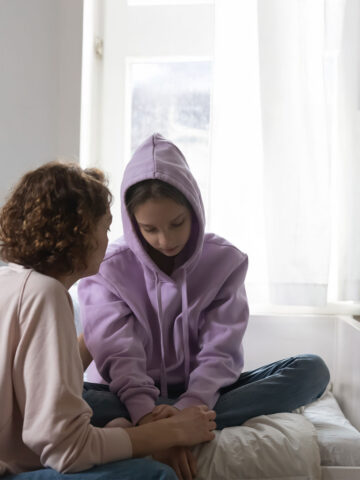Many children with ADHD have difficulty sleeping at night, whether or not they are on medication. ADHD can cause hyperactivity in some kids, making it seem like they are “on the go” until nighttime. If a child is on stimulant medication, parents may see more challenging behaviors at night as the medication starts to wear off. Some children on medication may have difficulty falling asleep because the stimulants affect them the same way that caffeine affects adults. No matter the cause, there are some simple strategies that may help kids of all ages with ADHD get to sleep more easily.
Develop rituals/routines
A bedtime ritual is a powerful sign that it is time to sleep. It needs to be simple so the child can “re-create” the ritual even if the parent is not present. Try writing out the bedtime ritual to make it consistent. For young kids, this might be reading a book with a parent. For older kids, it could be reading quietly to themselves in their room. Avoid activities that are exciting or energizing.
Social contact with parents, feeding, and easy access to interesting toys can encourage children to be up late, so try to set limits on attention-getting behaviors at night.
Keep bedtime and wake-up times consistent
Bedtimes and waking times should be the same seven days a week. Regular mealtimes and activity times, including playtime with parents, also help set sleep times.
It is easier to enforce a waking time than a bedtime. For young kids in need of more structure, it might be helpful to try a color-changing nightlight with a timer. Parents can set the light to turn green when it’s time to get up and out of bed at the same time every morning.
Encourage self-soothing during or after bedtime
Avoid activities that depend on a parent’s presence, including rocking or holding the child until they fall asleep. Teach them to soothe themselves, such as giving the child a special blanket, a picture of their parent, or a stuffed animal to hold while falling asleep.
Pay attention to the sleep environment
A cool, dark, quiet room is best. Background noises, sleep partners, bedding, favorite toys, and lighting can all affect a child’s ability to fall asleep.
Remove exciting toys, games, televisions, computers, and radios from your child’s bedroom if your child is having trouble falling asleep or is often up at night. One or two comforting stuffed animals are ideal.
Limit awake time in bed
Hours spent awake in bed interfere with good sleep patterns. The goal is to make the child’s bed a place for sleeping only. Letting young kids cry themselves to sleep is not recommended.
Avoid drinks with caffeine
Caffeine is present in a wide range of beverages, such as tea, soda, cocoa, and coffee. Drinking these beverages past the afternoon may make it more difficult for your child to settle down to sleep.
Chart your child’s progress
Praise your child for successful quiet nights. Consider marking successful nights on a star chart and providing rewards at the end of the week.
Consider medical problems
Allergy, asthma or conditions that cause pain can disrupt sleep. If your child snores loudly and/or has pauses in their breathing while they sleep, talk to your pediatrician.
While stimulant medication can make it harder for kids to sleep, some kids with ADHD may actually be helped by a small dose of stimulant medication at bedtime. This dose might help them to get more organized for sleep.
Medications for sleep need to be used very carefully in young children. Many sleep aids can cause complications or make sleep worse. Try medications to help your child sleep only under the close care of your child’s doctor.
Some children may ultimately need other bedtime medications — at least for a little while — to help improve sleep. Talk with your doctor before starting any over-the-counter or prescription medications.
Crisis Resources
If your child expresses thoughts of wanting to harm themselves or others,
call 9-1-1 or visit the nearest emergency department.
To reach the Crisis Text Line, text HOME to 741-741 or visit crisistextline.org.
To reach the National Suicide Prevention Lifeline, call 9-8-8 or visit 988lifeline.org.
Learn more about CHOC’s pediatric mental health services
At CHOC, we specialize in providing a full spectrum of pediatric mental healthcare, including inpatient, intensive outpatient and outpatient program services.
Get 24/7 advice from CHOC
External resources
National Institute of Mental Health
ADHD Statistics & Information
ADHD in Children and Teens: What You Need to Know
Children and Adults with Attention-Deficit/Hyperactivity Disorder (CHADD)
chadd.org
American Academy of Child & Adolescent Psychiatry – ADHD Resource Center
www.aacap.org




